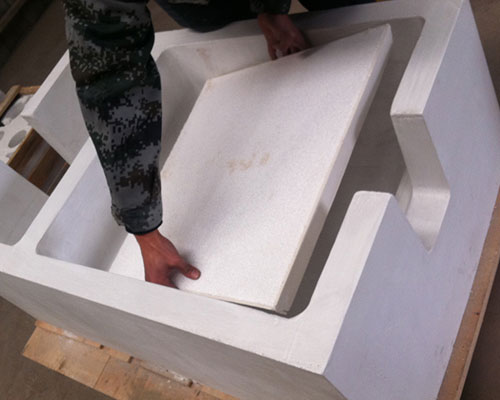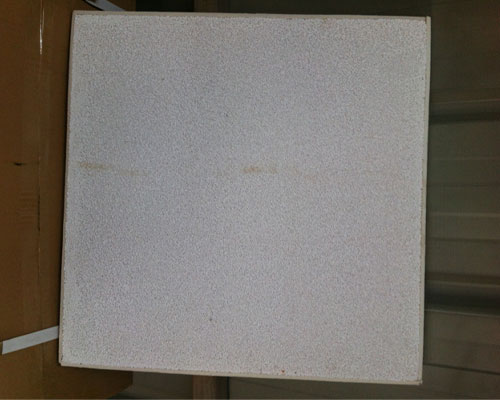Alumina ceramic foam filter is mainly used for aluminum alloy filtration in casting and foundry workshops. The alumina ceramic filter has excellent resistance to molten aluminum corrosion, which can effectively remove inclusions and reduce residual gas.
Aluminum foundry ceramic filter filtering improves the quality of aluminum wheel castings, avoids defects such as slag inclusions and pores, and improves ductility.
In the production process of cast aluminum alloy ingots, if the control is improper, various product defects often occur, especially aluminum-silicon alloys.
The slag mixed into the ingot or other non-metallic impurities falling into the ingot are called non-metallic inclusions. The fracture features are black strips or flakes, and the microstructure features are mostly black linear, blocky, flocculent, disordered organization, which has obvious color difference from the substrate.
Non-metallic inclusions are an important cause of delamination and many surface defects in aluminum processed products. During the heat treatment and heating process, the presence of non-metallic inclusions will promote the formation of secondary pores and bubbles.
In terms of mechanical properties, non-metallic inclusions are places where stress is concentrated, thereby reducing the strength limit and elongation of the alloy. In particular, the reduction in transverse elongation and dynamic mechanical properties (impact toughness, fatigue strength and fracture toughness) is more serious. In addition, non-metallic inclusions will also reduce the stress corrosion resistance of the alloy.
Non-metallic inclusions (slag inclusions) are the most common waste products in aluminum alloy ingots. According to statistics, in terms of quality, ingots scrapped due to the inclusion of slag account for 10% to 25% of the total waste. Slag inclusions are usually caused by slag, lining fragments, and large oxides, which fall into the ingot along with the liquid metal during the casting process.

Alumina ceramic foam filter for foundry is used to filter molten aluminum and non-ferrous alloys. In addition to the use of alumina ceramic foam filter, you also need to pay attention to the aluminum alloy casting process:
1. Shorten the distance of the transfer launder system as much as possible and establish good transfer conditions to prevent fluctuations in the metal level. It is best to use the same grade of casting where possible.
2. Thoroughly bake the transfer tools, increase the casting temperature appropriately, carefully discharge the slag during the casting process, and carefully clean the furnace, flow plate and other tools after casting.

